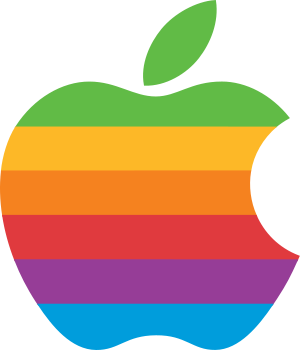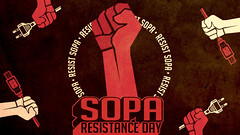This is the Tech Beat article I wrote for the Times Standard:
By last count, I have made over $3.5 billion on the Internet since 1997. It has not come all at once; the money trickles in a few million dollars at a time. Every once in a while a whopping $100 million will just appear out of the blue. Apparently, I have a lot of friends in Nigeria: a widow of a former financial director, a rogue general or two, ex-managers of oil companies who need someone with my last name, and a couple of deposed dictators. All of them need me to contact them so I can collect untold millions.
 Image by DonkeyHotey
Image by DonkeyHotey
The Nigerian Scam letter is one of the most persistent and successful con games on the Internet. ”While such an invitation impresses most law-abiding citizens as a laughable hoax, millions of dollars in losses are caused by these schemes annually,” the FBI's Internet fraud website reads. The website refers to it as one in a class of frauds called “advance fee fraud.” It is also called the “419” scam after the Nigerian penal code enacted against it.
In my study of these letters a few years back, I chose 400 letters at random from seemingly different sources and traced the IP, or Internet protocol, addresses of about 200 of them (yes, I had more time on my hands then). Although not fool proof because Internet addresses can be spoofed, the emails seemed to come from everywhere: Nigeria, other African countries, Italy, the Netherlands, South America and all around the Pacific Rim. It is difficult to determine if an email comes from a real or fake account. The difficulties are illustrated by the one email which I traced to the Netherlands, but it claimed to be from Africa and had an email account from England. I found four major variations of the scam: the son or daughter who needs help in claiming the inheritance; an aide to an official who needs to open a foreign account for over-invoiced money; a banker who finds an abandoned account and needs a foreigner to claim the money; and the widow of an official wgi has money for a foreign investor or to “do God's work.” But common to all is the required advance fee to access the money. The letters are a request for assistance in the transfer of millions of dollars to an overseas account, for which the victim is promised a percentage.
Many recipients of these emails think that the authors are trying to get bank account numbers -- it is far more insidious than that. If a potential victim responds to the email, then the culprits start asking for more and more legal fees and bribes. They will take the money until the victim starts to complain, and then the culprits typically move on to the next victim. Like many Internet scams, their success depends on volume. For every 10,000 emails they send out, they may get only a couple of responses, but that is all they need. Often, victims are asked to come to Nigeria. If that happens, the victim runs the risk of kidnapping or murder.
Two days after the capture of Saddam Hussein in Iraq, I received an email from a man claiming to be an arms dealer who had money to buy weapons for the insurgency. Since Saddam had been captured and the war was essentially over, would I help him find an appropriate bank to deposit $22 million? The letters are often written with bad grammar, phonetic spelling and in dialect. This allows the reader to imagine a poor, naive foreigner who will surely be taken advantage of.
”Why shouldn't that person be me?” a potential victim might ask.
Some of the letters ask that the victim send assurances that they will deal with the author honestly. This is meant to give the victim a sense of shared risk. If the authors can convey the feeling that they have something to lose, then the victim is more likely to believe that he or she has something to gain.
Variations of this con have been around since at least the 1920s as a variation of the “Spanish Prisoner” scam, which involves collecting money for bribes to help release an aristocrat who is supposedly languishing in prison. If you help with the escape, you will be handsomely rewarded by the family.
Who would fall for such a blatant scam? How could anyone respond to one of these emails? The FBI warns us that we should not reply to these emails. The more economically desperate the times, the more desperate the possible measures. A small percentage of people is willing to believe anything if it will get them in the black and out of trouble, and another percentage is always willing to make that offer, solicited or not.
Geoff Cain is the director of Distance Learning at College of the Redwoods. He also serves on the board of directors for the Redwood Technology Consortium. Want to know more about technology and education? See Geoff's blog at
http://www.geoffcain.com.
 Image via Wikipedia
Image via Wikipedia













